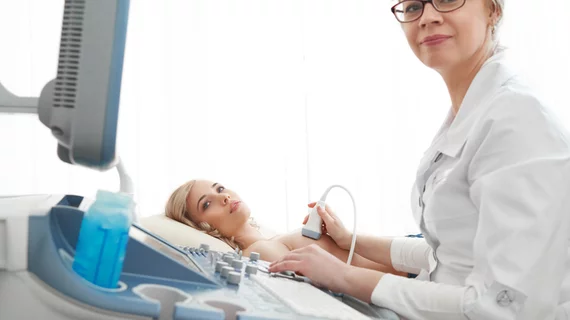Same-day breast biopsies bolster patient satisfaction but may increase anxiety
Performing core-needle breast biopsies the same day they were recommended by a radiologist appears to bolster patient satisfaction, according to new research published Tuesday.
Oftentimes, navigating from a screening mammogram to diagnostic imaging and later a biopsy can be a “stressful and complicated process.” Time intervals between each step can vary widely, with individuals sometimes waiting weeks, researchers wrote in the Journal of the American College of Radiology [1].
Duke University recently experimented with scheduling biopsies the same day they were recommended by a physician, hoping to increase patient contentment while reducing anxiety. The intervention appeared to help with the former but not the latter.
“In the pre-biopsy setting, there were clear benefits to same-day appointments, with higher pre-biopsy satisfaction with overall care and wait time,” radiologist and lead author Lars J. Grimm, MD, and colleagues wrote Jan. 9. “Surprisingly, we also found that same-day biopsy patients had higher pre-biopsy anxiety, and there was no difference in overall post-biopsy satisfaction between same-day and later-day biopsies,” they added later.
For the study, Duke researchers administered a survey to patients across four care sites the same they underwent an imaging-guided core needle biopsy. A total of 974 individuals filled out the questionnaire for a response rate of 65.6%. Of those, 47.8% were scheduled for same-day biopsies, which were associated with higher overall pre-procedure breast care satisfaction. Same for contentment with wait times, though same-day biopsy patients had higher anxiety levels before and afterward.
Grimm and colleagues underlined the importance of radiologist-patient communication. Such interaction was associated lower anxiety and greater overall/wait-time satisfaction prior to a biopsy.
“Effective pre-biopsy radiologist-patient communication involves patient-centered, compassionate discussions, including building rapport, clear descriptions of procedures, listening skills, taking time for questions, and setting expectations that are tailored to the specific clinical situation and patient needs,” the authors advised. “Although many radiologists recognize the value of effective communication, finding the necessary time in a busy breast imaging practice may seem logistically challenging.”
Read much more, including potential study limitations, at the link below.

